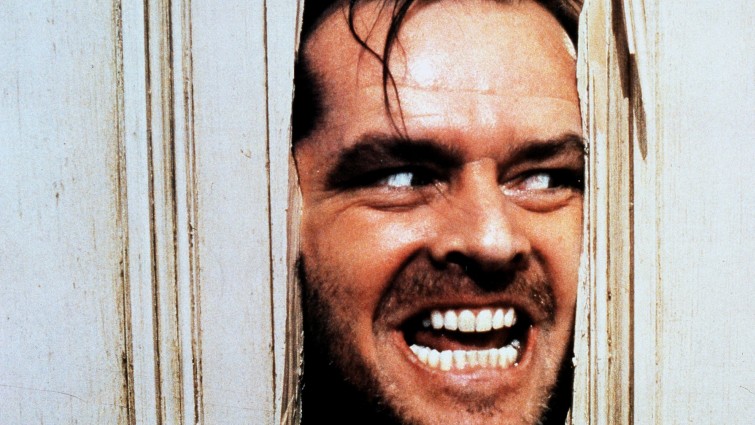

Member review

The Shining
A man takes a job as a caretaker at an isolated hotel during the winter off-season, bringing his family along, but the situation soon...
Certificate
Duration114 mins
Review by
- Josh, 17
- 2 reviews
Review by Josh, 17
While the Shining showcases Kubrick at his mercurial, meticulous best, it's interesting in being horror film without a clear, definitive monster. While in the sense of conventional horror films the villain is revealed after a considerable time of the director crafting a vacuum for them to inhabit, slowly featuring more and more prominently as the film progresses, the spectator gets to see Jack's journey from 'sanity to insanity'. Kubrick deliberately hangs both ambiguity and obviousness over who it's 'villain' is, dependent of how spectators choose to interpret it.
The spectator follows the journey of Jack and his family as they spend their winter in a remote hotel where Jack both works as the caretaker, and also where he plans to write. One of the film's greatest themes is the idea of solitude; the isolation and loneliness away from the world, and how damaging this can be to not only the characters within the film, but also on a far greater scale, within the real world. We see the slow descent of Jack into madness; yet we are also left questioning if the madness has also infected us, with elements of surrealism occurring frequently, in order to make spectators feel as if they are just as confused as Jack. Events such as seeing Danny and Wendy in the maze from above when Jack looks down into it, Jack being freed from the storage room by the ghostly voice after being locked in there by Wendy, and the transformation of the woman in room 237 all point to the idea that the madness lives within the hotel itself, not Jack's head. When we see Lloyd at the bar, both him and Jack feature within the same shot, and Jack is able to physically interact with 'guests' of the hotel too, as when Wendy spills the drinks he's carrying onto Jack.
The idea of madness could be to show the flawed nature of humanity, no better than common animals, simply reverting back to our animalistic tendencies. Certainly Jack embodies this idea, gradually reverting to an animalistic state as the madness sets in, grunting when asleep at his desk and down on all fours when waking up. The Human side of him desperately tries to fight for control and rational, attempting to convince himself that he is still sane. However the primeval urges grow too great; try as Jack might to overcome them, eventually breaking down into incomprehensible grunts and shouts. It's certainly ironic that as an animal he is unable to deal with the plights of nature in a 'chilling' climactic scene; with Jack's crippled limp evocative of a war dance come the completion of his transformation and ultimately his downfall: in being unable to keep up with Danny in the maze.
Kubrick's ear for sound is a class above most other mainstream directors of the time as well; most evident in the long opening sequence, where the camera seems to act like a ghostly figure, dancing across the water and between the mountains. The low, brooding opening score, sets the chilling tone of the film in place and already presents spectators with a picture of the nature of the film still to come. The repetitive eery screech as well signals Danny transcendence of what's humanly possible when using his shining powers, allowing spectators to the further grasp this abstract concept and to understand to a greater extent the capabilities of his power.
As with most of Kubrick's films, The Shining is left on a moment of great questioning and confusion with the shot of the picture, featuring Jack in attendance at a ball of the Overlook hotel from 1921. So was Jack really a psychotic killer who's mind was corrupted by what seemed an endless solitude from the world? Or was there a larger force at play to which Jack became a helpless victim? Is the picture now representative of purgatory; where Jack and his predecessor: Delbert Grady, are now destined to spend the rest of their days- trapped for all eternity?
Ultimately, the Shining is a horror film with a great level of psychological depth and room for interpretation. While modern audiences may feel concerned by the film's initial pacing and unclear resolution, the events which unfold will chill to the core, and leave spectators both deeply concerned by what they have seen, but also still searching for meaning long after the end-credits. One of the greatest films, by one of the greatest directors of all time.